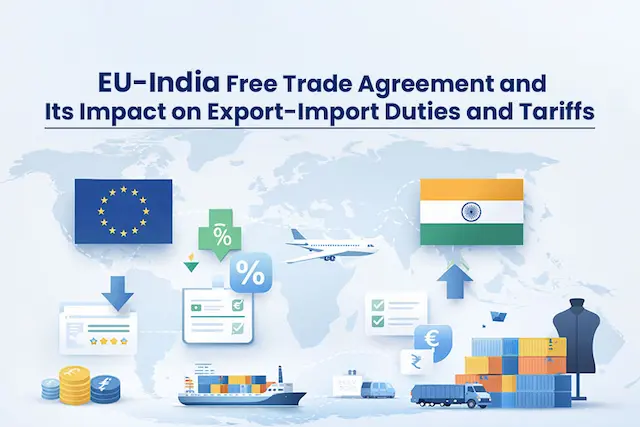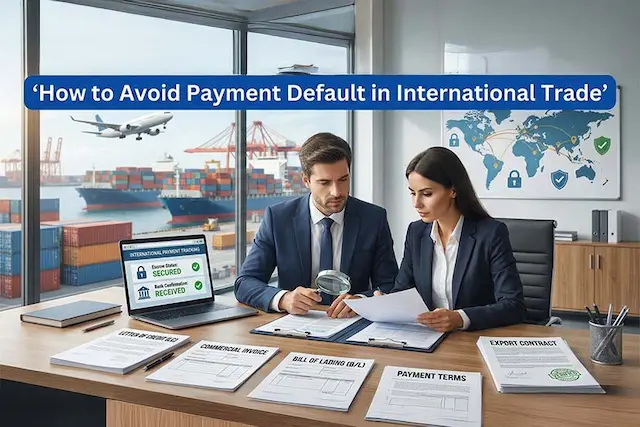Ex Works (EXW) is one of the 11 official Incoterms (International Commercial Terms) used in international trade. Incoterms were created by the International Chamber of Commerce (ICC) to standardize shipping agreements between buyers and sellers across different countries. The EXW term was first introduced in 1936, and its purpose is to clearly define the responsibilities of both buyers and sellers in global trade transactions.
EXW Incoterms Meaning
The term “Ex Works” means that the seller has the minimum responsibility. The seller’s only duty is to make the goods available at a specific location, usually at their warehouse or factory. After this point, all the risks, responsibilities, and costs of transportation, shipping, and customs clearance fall on the buyer. The seller’s job is considered done once the goods are made ready for pickup by the buyer at the agreed location.
In EXW, the buyer is responsible for the entire process of transporting the goods, from the seller’s warehouse all the way to their final destination, including any international borders the goods may need to cross. This arrangement can be beneficial for sellers as they are only obligated to deliver the goods to their own premises, without having to worry about shipping or additional logistics.
However, for buyers, this means they take on all the responsibilities and costs, including transportation, export and import duties, insurance, and customs clearance.
Key Features of EXW Incoterms
Here are some of the key features of EXW Incoterms:
- Seller’s Responsibility: The seller’s responsibility ends once the goods are made available at their premises.
- Buyer’s Responsibility: The buyer handles all transportation, risk, and costs from the seller’s warehouse to the final destination.
- Legal Formalities: The buyer is responsible for handling all legal procedures, such as customs clearance.
- Costs: All costs after the seller’s premises are borne by the buyer.
EXW Shipping Terms
Here are the basic terms under the Ex Works (EXW) Incoterm:
- Seller’s Responsibility: The seller is only responsible for preparing and maintaining the goods in a ready-to-ship condition. This could involve packaging the goods and getting them ready for the buyer’s pickup.
- Buyer’s Responsibility: The buyer takes on full responsibility once the goods are available for pickup. The buyer handles the entire shipping process, including loading, transporting, and unloading goods at their warehouse or factory.
- Risk Transfer: The risk of any damage or loss of goods is transferred from the seller to the buyer as soon as the goods are made available for pickup at the seller’s location.
Buyer and Seller Responsibilities in EXW
Let’s break down the responsibilities of the buyer and the seller under EXW terms:
Factory Terms
- Seller: The seller provides the goods at their factory or warehouse. The goods are made ready for the buyer to collect. Once the goods are ready, the seller’s obligation ends, and the buyer becomes responsible for the goods.
- Buyer: The buyer must arrange transportation from the seller’s factory to their own location. This includes the cost and responsibility of loading the goods at the seller’s premises and taking care of the shipping process until the goods reach the buyer’s destination.
Packaging Terms
- Seller: The seller is responsible for packing the goods in a manner that is suitable for export. This includes checking, marking, and preparing the goods for shipment. The seller bears the cost of packaging.
- Buyer: The buyer typically has no role in the packaging process. The seller may provide the buyer with documentation regarding the goods, such as invoices or labels, but packaging is the seller’s responsibility.
Loading and Unloading
- Seller: In EXW, the seller is not obligated to help with loading the goods onto the buyer’s transport. However, if the seller does assist in loading, it is done at the buyer’s cost and risk.
- Buyer: The buyer must handle all loading and unloading activities throughout the process, including:
- Loading the goods at the seller’s warehouse.
- Unloading them at the port or border for shipping.
- Loading them again onto a vessel or plane.
- Unloading them upon arrival at the destination.
- Transporting and unloading the goods at their final destination.
Documentation
- Seller: The seller is responsible for providing the necessary documents related to the goods, such as a bill of lading, commercial invoice, insurance certificate, and packing list. These documents may be required for the buyer to complete the delivery process.
- Buyer: The buyer uses these documents to arrange shipping and customs clearance. The buyer may also request additional documentation, such as quality certificates or licenses, but it is ultimately their responsibility to handle the paperwork required for transport.
Delivery Terms
- Seller: The seller delivers the goods at their premises or at another named location. If no specific location is mentioned, it is assumed that the goods will be made available at the seller’s factory or warehouse. The seller must deliver the goods within an agreed time frame.
- Buyer: The buyer is responsible for picking up the goods from the seller’s location and completing the rest of the transportation process.
Freight Terms
- Seller: Under EXW, the seller is not involved in any shipping activities and is not responsible for freight charges. However, the seller may offer assistance to the buyer in arranging the transport, but this is done at the buyer’s cost and risk.
- Buyer: The buyer is responsible for all freight charges, including truck, ocean freight, and shipping costs. The buyer also covers all additional transportation costs incurred after the goods leave the seller’s premises.
Customs Clearance
- Seller: The seller is not responsible for customs clearance, either for export or import. However, if requested by the buyer, the seller may assist with export clearance, but again, at the buyer’s cost and risk.
- Buyer: The buyer is responsible for handling all customs duties and procedures, including export and import clearance, customs documentation, and payment of any associated taxes or fees.
Insurance
- Seller: The seller is not obligated to provide insurance coverage for the goods. However, if the buyer requests, the seller may assist in arranging insurance, but at the buyer’s expense.
- Buyer: The risk of the goods during transit falls entirely on the buyer. Therefore, the buyer is responsible for deciding whether to insure the goods during the shipping process.
Example of Ex Works (EXW)
Let’s look at an example to understand how Ex Works works in a real trade scenario:
Imagine Company A is a manufacturer of generators located in India, and Company B is a distributor located in the USA. Company B places an order for 100 generators from Company A. Company A offers two price quotes:
- $400 per generator, including shipping costs.
- $300 per generator, without shipping costs (EXW).
Company B decides to choose the EXW option because they can find a cheaper shipping service than what Company A is offering. They manage to negotiate a shipping cost of $70 per generator, saving $30 per generator compared to the seller’s shipping cost.
In this case, Company B is responsible for all the transportation costs and the entire shipping process, including customs clearance, while Company A’s responsibility ends once the generators are made available for pickup at their factory.
EXW vs. Other Incoterms
To better understand EXW, let’s compare it to a few other commonly used Incoterms:
EXW vs. FOB (Free on Board)
Under FOB (Free on Board), the seller is responsible for delivering the goods to a port and loading them onto a vessel. Once the goods are on board, the risk and responsibility transfer to the buyer. In contrast, under EXW, the buyer takes responsibility as soon as the goods are made available at the seller’s premises.
EXW vs. FCA (Free Carrier)
In FCA, the seller delivers the goods to a carrier or another named place after clearing customs for export. The buyer takes responsibility once the goods are delivered to the carrier. In EXW, however, the buyer is responsible from the moment the goods are available at the seller’s location.
EXW vs. DDP (Delivered Duty Paid)
In DDP, the seller is responsible for delivering the goods to the buyer’s location, including paying all duties and taxes. This is the opposite of EXW, where the seller has the least responsibility, and the buyer handles all transportation, customs clearance, and costs.
EXW vs. CIF (Cost, Insurance & Freight)
Under CIF, the seller pays for the cost of transportation, insurance, and freight to deliver the goods to the buyer’s port. Once the goods arrive, the buyer takes over responsibility. In EXW, the seller does not cover any transportation or insurance costs, and the buyer is responsible for everything from pickup at the seller’s warehouse to delivery at their own warehouse.
Also Read: Understanding International Trade Finance, Its Working and Types
Conclusion
EXW (Ex Works) is an Incoterm used in international trade that places the most responsibility on the buyer. The seller’s role is limited to making the goods available at their premises, while the buyer handles everything else, including transportation, customs, and insurance. EXW can be a good option for buyers who have the resources to handle logistics and want to have control over the shipping process. However, it can also be a significant burden for buyers who are not experienced in managing international trade logistics.
Also Read: Top 5 Ways To Finance Your International Trade/Export Business in 2024




